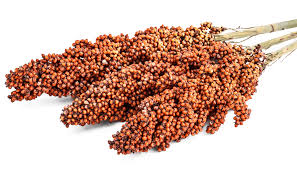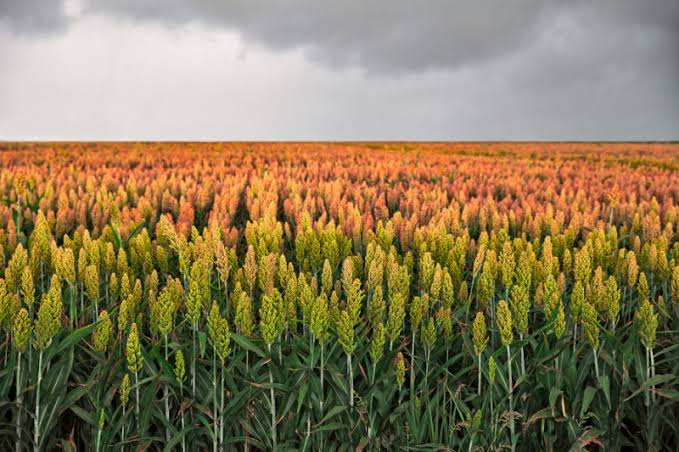Sorghum Prices Defy Harvest Season In Jigawa, Consumers weigh options

…Sorghum is the world’s fifth-most important cereal crop after rice, wheat, maize, and barley.
By Ali Ali Rabiu, Dutse
Friday, 27th December, 2024.
Sorghum prices in Jigawa State remain high despite being harvested for couple of weeks, leaving consumers disturbed.
At the grains market in Dutse, the state capital, traders and customers alike are surprised that the price unexpectedly remains high at harvest period.
Ibrahim Garba, a local farmer says ” it is surprising, We expected prices to drop during the harvest season, but they’ve remained high.”
For Jigawa’s sorghum farmers, the high price is a welcome respite because of the challenges they faced producing the crop.
“We struggle to access fertilizer, and when we do, it’s expensive,” explains Malam Mujittapha, a farmer from Gagarawa Local Government Area.
Read Also:Governor Namadi Signs Jigawa State Electricity Regulatory Commission Law
The high prices are particularly burdensome for consumers, many of whom rely on sorghum as a staple food. “I’ve had to reduce my consumption of tuwo (sorghum meal) because it has become too expensive,” laments Malama Aisha Ibrahim, a mother of five, in Jigawar tsada, Dutse.
Researcher and an Associate professor at the department of Agricultural extension,Federal University Dutse, Ado Garba Jangargari, who researched millet and sorghum and beans value chain in Jigawa State, identified key challenges facing farmers, including lack of capital, unstable prices, and limited access to fertilizer.

He said Promoting stability in sorghum price is closely related to food security. However, all efforts must be based on the existing factual economic conditions.
“We are trying to analyze the factors affecting the Nigerian sorghum market, such as rainfall information. Considering that Sorghum is a staple food in Nigeria, more specifically in the northern region” says Jangargari.
The associate professor said the period of sorghum harvest is relatively concentrated in time due to this relationship. This leads to large fluctuations in the price of sorghum over a short period, which complicates efforts to overcome the food security problem.
He said Northern Nigeria mainly depends on domestic production of sorghum to solve their food problems. However, he said people also face food security-related risks from fluctuating market prices. “Therefore, we tried to identify some environmental impacts that stabilize the harvest-season sorghum pricing, which will contribute to addressing their food security issues”.
“For that purpose, we will start by clarifying the problems in the sorghum market. Why sorghum prices refused to crash even at this period of harvest, is mainly due to supply and demand dynamics, this simply explain the production and consumption trends, major buyers are busy hoarding at their wire houses, consumer taste and preferences and then prices of other commodities and also sorghum farmers are now very careful due to fear of unknown hardship that they now prefer to sale small part of the sorghum they produce than before” He stated.
“To address these issues, we recommend providing farmers with access to affordable loans, fertilizer subsidies, and irrigation facilities,” Jangargari suggests. “Establishing linkages with industries can also help stabilize prices.”
As the harvest season continues, stakeholders are calling on policymakers to intervene. “The government should provide support to farmers and regulate market prices to ensure fairness,” demands Alhaji Yusuf Adamu, Chairman, Jigawa State Farmers Association.
Until then, Jigawa’s sorghum farmers and consumers will continue to feel the pinch of high prices, despite the bounty of the harvest season.
“Sorghum is the world’s fifth-most important cereal crop after rice, wheat, maize, and barley. Sorghum is typically an annual, but some cultivars are perennial. It grows in clumps that may reach over 4 metres (13 ft) high. The grain is small, 2 to 4 millimetres (0.08 to 0.2 in) in diameter”research.
Jigawa Post analyzes that about 80% of Jigawa State’s population engages in agriculture. Sorghum is a staple crop in Jigawa State, accounting for 30% of total crop production. The state produces over 1.5 million metric tons of sorghum annually.

I’m always available to provide Jigawa post with relevant academic information in the following areas:
1. Agriculture and Rural Development
2. Security and Farmers – Pastoralist conflict resolution
3. Agripreneurship
Alhamdulillah I harvested over 15 bags without an iota of fertilizer.